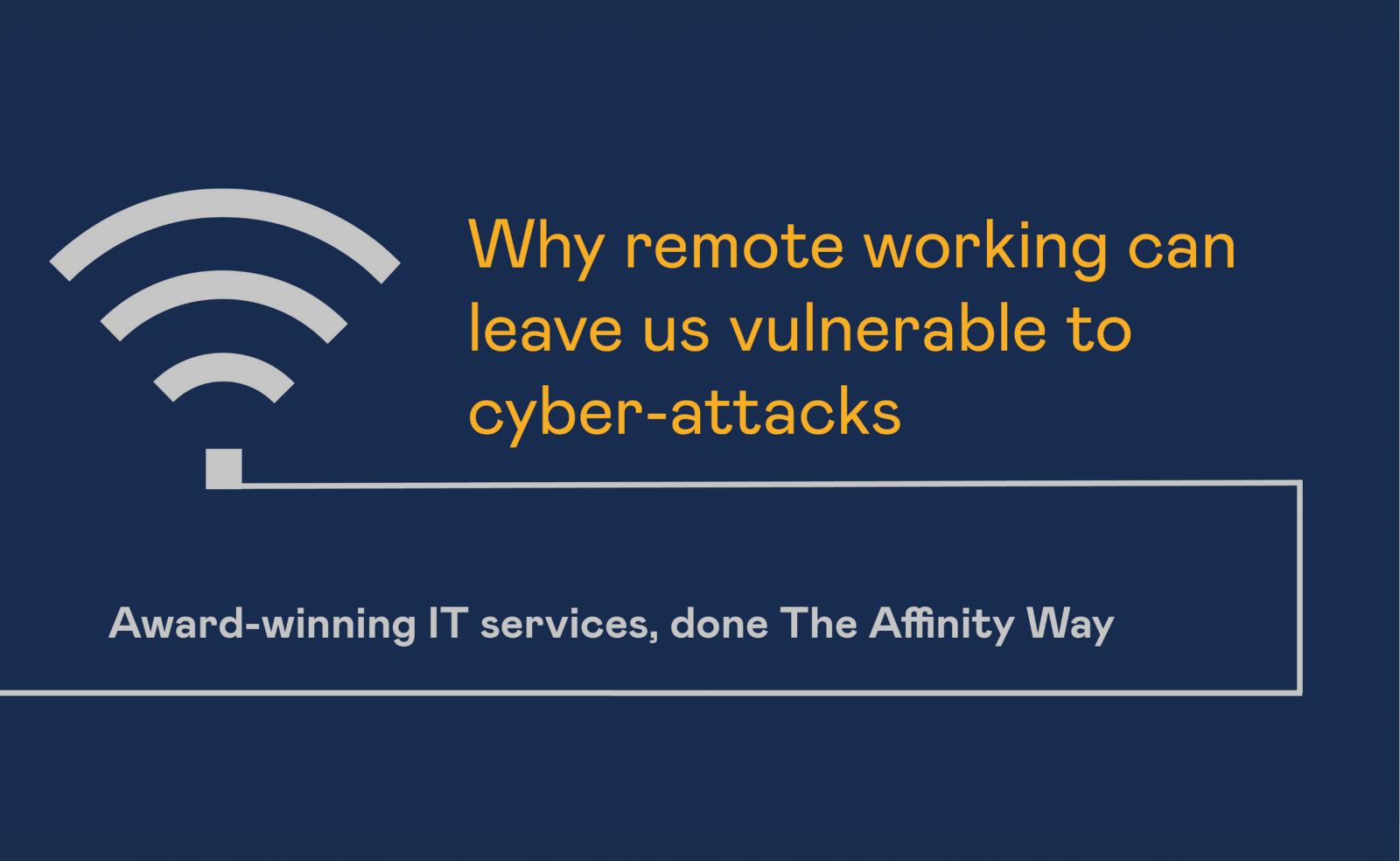The move to remote working has not been easy, nor has it been without risk. Employees taking work laptops and systems full of sensitive data into their homes without being able to certify the security like you would in the office, makes for worrying times for any business owner.
A recent article by the BBC has highlighted data from numerous sources which proves that you are right to feel nervous. The data shows that working remotely from home leaves us vulnerable with attacks looking more and more likely. The key headlines from the article were:
- 56% of senior IT technicians believe their employees have picked up bad cyber-security habits while working from home (Tessian)
- 39% of employees admitted that their cyber-security practices at home were less thorough than those practised in the office (Tessian)
- 50% of employees admit that this is a result of feeling less scrutinised by their IT departments (Tessian)
- In 2020, Barracuda Networks said it had seen a 667% increase in malicious phishing emails
- Google also reported, in 2020, that it was blocking over 100 million phishing emails daily
As a business owner, this is something you should be concerned about. The impact of cybercrime can be felt by businesses of all sizes.
A report by Security Magazine found that the most common attack over the last 12 months was hacking through email or social media, which accounted for 53% of the attacks over that period. Scams caused by the hacking of computer systems was the second most prominent attack over the same time.
Cyber-criminals don’t just go for the big organisations, however. Here’s what we know:
- A Bellguard survey of 3,083 small and mid-size businesses (SMBs) showed that 23% of small businesses both in the US and in the UK neglected the use of endpoint security mechanisms.
- In the same survey, 32% of those who were surveyed who did use endpoint security protections relied solely on free, consumer grade cybersecurity solutions!
- 22% of SMBs who switched to remote working during the Covid-19 pandemic had done so without a cyber-security threat prevention plan.
- With a lower budget for cyber-security, SMBs are an easier target for cyber-criminals as there is next to no cybersecurity procedures in place.
- 90% of incidents which end with a data breach, began with a phishing email.
Over the last 18 months, Affinity have taken the necessary steps to make sure our customers are ready and prepared when it comes to cybersecurity.
We deliver award-winning cybersecurity technology using ESET antivirus, as well as being able to provide cybersecurity training to ensure everyone within a company is as highly trained on cyber-security.
Visit our website find out how we can secure your IT https://affinityit.co.uk/services/security or get in touch today by phoning 0114 362 7000.
Don’t be caught out!



